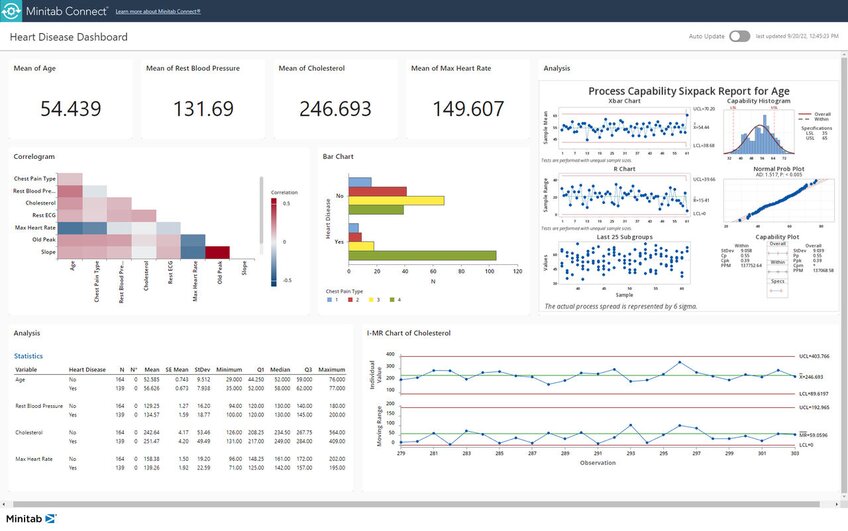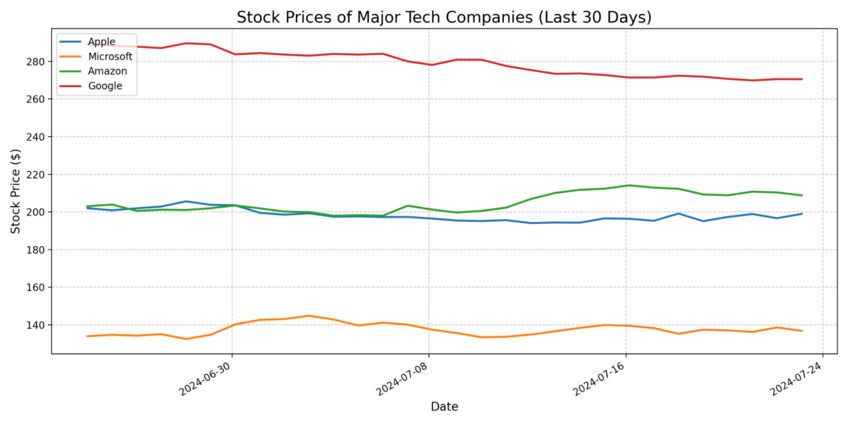August 6th, 2024
5 Best Minitab Alternatives for Better Statistical Analysis
By Connor Martin · 10 min read

Minitab has long been a go-to stats package for analysts, students, and statistical researchers far and wide. It’s intuitive, robust, and relatively easy to work with, offering a lot of stats analysis tools and features to extract insight and actionable info from reams of data.
But it’s not the only option in the field of statistical analysis software. There are plenty of other programs out there that you may prefer to use or need to switch to when Minitab isn’t quite right. This guide looks at some of the best Minitab alternatives to consider.
Understanding Minitab
Before we look at any of the many Minitab alternatives, let’s first explore what Minitab is, its history, and some of its key pros and cons.
Minitab is a statistical software package, developed at Pennsylvania State University by a group of researchers together with the Triola Statistics Company. It was developed way back in the early 1970s, and released in ’72. Since then, it’s undergone many changes and improvements. New features, interface enhancements, and other upgrades have come along to suit the changing tech and stats landscapes. Thanks to this, even now, decades after its initial release, Minitab remains a useful and versatile tool.
It provides an array of data analysis features and functions. It can, for instance, carry out descriptive statistics, regression analysis (including linear, non-linear, and other variants), statistical process control, reliability testing, and so on. It’s also able to create visual representations of stats and data, like charts and graphs.
The many features and versatile utility of Minitab make it a popular piece of software in numerous industries. That includes the likes of education, manufacturing, production, research, engineering, and healthcare, to name but a few.
Minitab Pros
Here’s why so many users opt for Minitab over other data processing solutions:
- Relatively Intuitive: One of the reasons why Minitab has stood the test of time is that it’s quite an easy tool to work with. Even beginners can quickly adapt to the simple UI and core features.
- Robust: As stats packages go, Minitab is immensely comprehensive. Regression analysis, predictive analysis, data exploration – the list of features goes on and on.
- Flexible: Whether you’re working with small or large datasets, Minitab can handle it. It also offers flexible report generation and exporting formats to suit the user’s needs.
Minitab Cons
Next, some reasons you might want to use alternatives to Minitab:
- Pricey: As far as data science software goes, Minitab is far from a cheap program. Its high price may be off-putting to certain users.
- Learning Curve: While Minitab rightfully earns praise for its straightforward design, it’s still quite a complicated program. New users will need time to figure out how it all works and understand the more advanced features and functions.
- Limited Capabilities: In certain areas, Minitab is quite restrictive. It lacks programming features that let you write your own custom scripts, for example, and it doesn’t have too much to offer in the field of advanced data manipulation.
What Are the Top 5 Alternatives to Minitab?
Looking for a Minitab alternative? Consider these five solutions:
1. Julius AI
2. Tableau
3. SPSS
4. JMP
5. OriginPro
#1 - Julius AI
Julius AI is an AI data analyst. Just like how ChatGPT and similar AI bots can answer questions and generate content, Julius AI is able to carry out advanced stats and data analysis, all with the power of AI.
There are so many advantages to using this tool instead of Minitab or other pieces of software. Firstly, it's lightning-fast, so you can analyze massive datasets in a matter of minutes. Second, it’s capable of so much, including very advanced analysis, predictive forecasting, and visualization. It’s also free to start using, and super simple – just enter your data and a prompt and let the AI do the rest.

#2 - Tableau
Tableau is a data visualization tool, designed to take data and draw actionable, relevant insight from it in order to power data-driven decisions.
This tool is mainly aimed at business users. It’s great for businesses that want to read their data more clearly, get more out of it, and use it to make the right moves as they go forward. In visualization, it excels, making a great range of charts, graphs, maps, and even color wheels.
#3 - SPSS
SPSS (otherwise known as IBM SPSS Statistics), like Minitab, is a long-running statistical software solution that has been around for decades.
Additionally, just like Minitab, it’s known for being intuitive, relatively easy to work with, and versatile, with many features and functions for data and stats analysis. It’s also excellent in data manipulation, organization, and cleaning, helping you draw the most accurate conclusions and insights from the stats you’ve gathered.
#4 - JMP
JMP is a statistical discovery software suite, designed for both stats analysis and machine learning. It launched back in 1989 and is still going strong to this day.
Similar to Tableau in many ways, JMP aims to help businesses make data-backed decisions. It helps to extract insights and spot patterns or trends in vast datasets more easily than with other tools or solutions. It’s very good at predictive analytics, making accurate forecasts and models that businesses can use to map out their future strategies.
#5 - OriginPro
Last but not least, is OriginPro. Made by OriginLab Corp, this is a versatile data analysis and graphing solution, used by hundreds of thousands of researchers, engineers, and data professionals in numerous industries.
Versatile, powerful, and surprisingly straightforward to work with, OriginPro has plenty of advantages that set it apart as a top-tier Minitab alternative. It can make many forms of graphs and other visual representations of data with peerless accuracy, as well as offering spreadsheeting, multivariate analysis, and other stats analysis features.
Make Statistics Simple and Stress-free with Julius AI
Minitab is certainly a helpful tool in business intelligence and stats analysis, with a lot of selling points and advantages. But, as this guide has shown, it’s not the only option out there. And it’s wise to expand your stats tech stack with additional solutions to suit every situation.
Julius AI is one of those must-have solutions. Of all the Minitab alternatives listed above, it’s the easiest, fastest, and most powerful. In seconds, it carries out advanced analytical processes with flawless precision, and there’s such a lot that it can do.
Give Julius AI a test drive today and take your stats analysis to a new level.
Frequently Asked Questions (FAQs)
Does anyone still use Minitab?
Yes, Minitab is still widely used, particularly in industries like manufacturing, education, and healthcare for tasks such as quality control, process improvement, and statistical analysis. Its user-friendly interface and robust statistical tools make it a go-to choice for professionals who need reliable, straightforward analysis.
Can I use Excel instead of Minitab?
Excel can handle basic statistical tasks like descriptive statistics and simple regression analysis, but it lacks the depth and precision of Minitab for advanced statistical methods. While Excel is suitable for smaller-scale projects, Minitab is better for handling complex data analysis with higher accuracy.
Is R better than Minitab?
R is more powerful and flexible than Minitab, especially for advanced statistical modeling, data manipulation, and visualization. However, R has a steeper learning curve and requires programming knowledge, whereas Minitab offers a more user-friendly interface suitable for those without technical expertise.
Do data scientists use Minitab?
Data scientists typically use more versatile tools like R, Python, or Tableau for large-scale data analysis and machine learning. However, Minitab remains popular among professionals in quality management and industrial engineering, where its specialized statistical features are particularly valuable.
